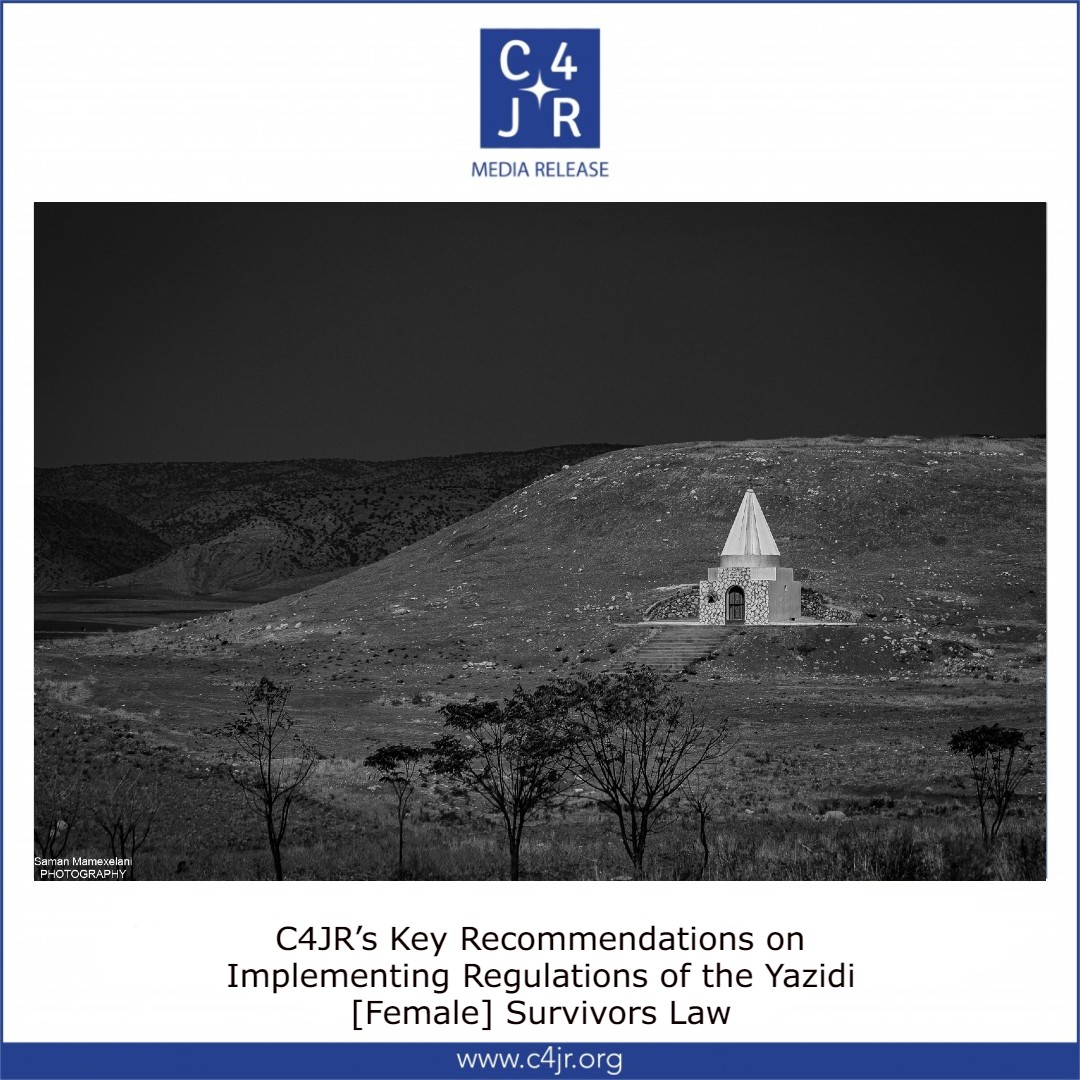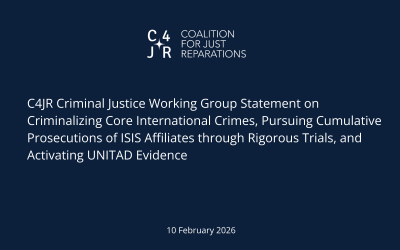C4JR’s Key Recommendations on Implementing Regulations of the Yazidi [Female] Survivors Law
On March 1, 2021, the Iraqi Council of Representatives passed the Yazidi [Female] Survivors Law (YSL). This law provides a sound basis for repairing the harm done to survivors of ISIL crimes in Iraq. Implementing regulations, that are to be issued by mid-June 2021, should lay the groundwork for effective implementation. By issuing such regulations in due time, Iraqi officials will send a strong signal to the survivors and the world that they remain committed to repairing the harm inflicted by ISIL.
C4JR respectfully urges Iraqi Council of Ministers together with the Ministry of Labor and Social Affairs to show leadership and issue effective and survivor-centered implementing regulations.
The following text highlights key C4JR recommendations.
When developing forthcoming regulations, the survivor-centered approach should be front and center. This would entail abiding by the principle of do no harm, upholding confidentiality of survivors, and prioritizing their safety, well-being, and dignity. A code of conduct and mechanism of its enforcement, detailing concrete obligations for all those working with survivors, should be established. Set up a comprehensive training program for all those participating in the application and review procedures and delivery of services. When determining the monthly salary of survivors, vulnerability of the person should be postulated as the main evaluative criterion. Clarify that those subjected to ISIL crimes before August 3, 2014, and continued to suffer the same violations at least until August 3, 2014, are eligible to receive reparations. Adopt a holistic understanding of rehabilitation that encompasses a range of specialized services for the survivors and their families. Envisage regular consultations with survivors to receive their feedback and adapt practices accordingly. Create fair, effective, and survivor-friendly application and verification procedures. Conduct interviews with survivors only if no other supporting data is available or upon their request. Create safeguards to avoid stigmatization and re-traumatization of survivors during outreach, application, review, and delivery of services. Ensure that claims are evaluated against a relaxed evidentiary standard, not amounting to legal standard of evidence under civil or criminal law. Once survivors can establish some veracity to their claims, a presumption of eligibility should arise shifting the burden of proof to the Committee. Create avenues to ensure that survivors residing outside Iraq can effectively realize their right to reparations. Make clear that there is no statute of limitations for submitting reparations claims and delivering benefits under the Law. Delineate effective modes of cooperation with national and international organizations.
See C4JR’s full recommendations: Click here to view as PDF version.



